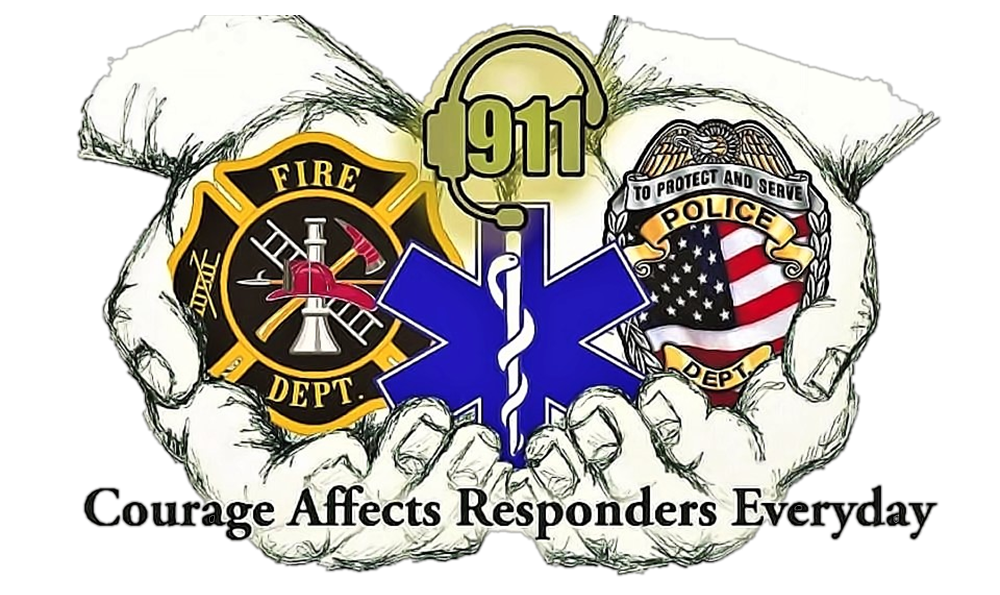Some of the top reasons voiced from First Responders not wanting to seek counseling are:
- Don’t want to try counseling (ex: due to stigma, fear, believed myths, time, money).
- Don’t want to give it another try after a not-so-great previous experience (ex: the counselor didn’t understand what we see or said “to just find a new profession”)
Both of these reasons along with the examples are all valid and warranted concerns and feelings a lot of First Responders experience when making the decision to seek counseling. However, just like finding a new primary care doctor (PCP) you may not always mesh with the first one you find. Just like in any field, there are some not so great counselors just like there’s some not-so-great Paramedics, Police Officers, Firefighters, Chiefs, Doctors, etc., you get my point.

I have put together this guide to help you navigate the ins and outs of finding a therapist along with de-bunking some myths, answering the top asked questions, and explaining the difference between the types of counselors.
I hope that this guide can help you find the right therapist for you!
Resource Alert: https://www.psychologytoday.com/us/therapists
Simply type in your zip code and the site will generate a list of mental health providers in your area. Some of the incredible perks of this site are:
- You can filter by insurance type, if you prefer to see a male or female counselor, by the type of issue being experienced as well as other filters to narrow down the list.
- The list then provides a picture and some information about the counselor.
- In addition to the filter function, you can look at each counselor’s about page to see what they treat (ex: PTSD), a list of insurances they take, if the take self-pay and what the fees are and more.

Finding a Therapist Q&A
Q: “I went to an EAP counselor provided through my department, but he didn’t know anything about a police officer’s world nor was he/she able to treat trauma and PTSD. Why would another counselor be any different?”
A: Counselors can specialize in certain areas of mental health just like a medical doctor. For example, if you needed a heart stent you wouldn’t go to your primary care physician, you would see a cardiologist. This is similar to how it works in the mental health world; different counselors provide different services and specializations.
Q: How do I find an inpatient facility or counselor that is on my insurance plan and if it’s a covered benefit?
A: Get your insurance card out, look on the back of your card. Some insurance companies will have a number to reach mental health benefits. If you don’t see this, call your customer service number and they can navigate you to those benefits. If you have a facility or counselor in mind, you can ask the insurance company to verify if they are on your plan. If you don’t have one, you can ask the insurance company to provide a list of covered facilities/counselors within a certain-mile radius from where you live/work, etc.
Q: What if I can’t afford my co-pay or I am self-pay with no insurance?
A: Some counselors will work with you on your co-pay or may provide a sliding scale for those who are self-pay. It can be difficult to seek the help needed without insurance or a huge amount of money. However, this should not deter you from seeking help as there are many resources available. In a mental health emergency (suicidal, psychosis, homicidal etc.) you should seek help at your closest emergency room or by calling 911.
Q: “What’s the difference between a counselor, therapist, psychologist?”
A: All mental health professionals just like medical professionals come with different credentials, backgrounds, experience, and preferences in the areas that they treat and specialize in.
- Counselors
- Hold a master’s degree in counseling or a related field.
- Provide counseling services to individuals, couples, families, or groups.
- Counselors focus on addressing emotional, behavioral, and mental health concerns, helping clients explore their feelings, thoughts, and behaviors.
- They often use talk therapy techniques, such as cognitive-behavioral therapy (CBT) or interpersonal therapy (IPT).
- Common areas of focus include relationship issues, career counseling, grief and loss, stress management, and general mental well-being.
- Therapist
- “Therapist” is an umbrella term that can refer to professionals with various degrees and specialties. (Ex. Trauma, EMDR)
- Therapists can include psychologists, counselors, marriage and family therapists, social workers, and other mental health professionals.
- They provide therapeutic interventions and support for individuals, couples, families, or groups.
- Therapists work with clients to address mental health challenges, improve coping skills, and promote personal growth and well-being.
- Their approaches and techniques may vary based on their specific training and expertise.
- Psychologist
- Psychologists hold a doctoral degree (Ph.D. or Psy.D.) in psychology.
- Specialize in the assessment, diagnosis, and treatment of mental health disorders and psychological issues.
- Provide talk therapy and may use evidence-based approaches, such as cognitive-behavioral therapy (CBT), psychodynamic therapy, or humanistic therapy.
- Conduct psychological evaluations and assessments to help diagnose and understand clients’ psychological functioning.
- May also engage in research, teaching, and consulting in addition to clinical practice.
- Psychiatrist
- Psychiatrists are medical doctors (M.D. or D.O.) who specialize in mental health and psychiatric disorders.
- Ability to prescribe medication to treat mental health conditions.
- Psychiatrists evaluate, diagnose, and treat mental disorders, including severe mental illnesses.
- Provide talk therapy (psychotherapy) alongside medication management for clients.
- Work in collaboration with other mental health professionals, such as psychologists or therapists, to provide comprehensive care.
- It’s important to note that the specific roles and scope of practice for these professionals can vary based on factors such as their credentials, state regulations, and areas of specialization. It’s advisable to seek professional help from qualified individuals who are licensed or certified in their respective fields.
